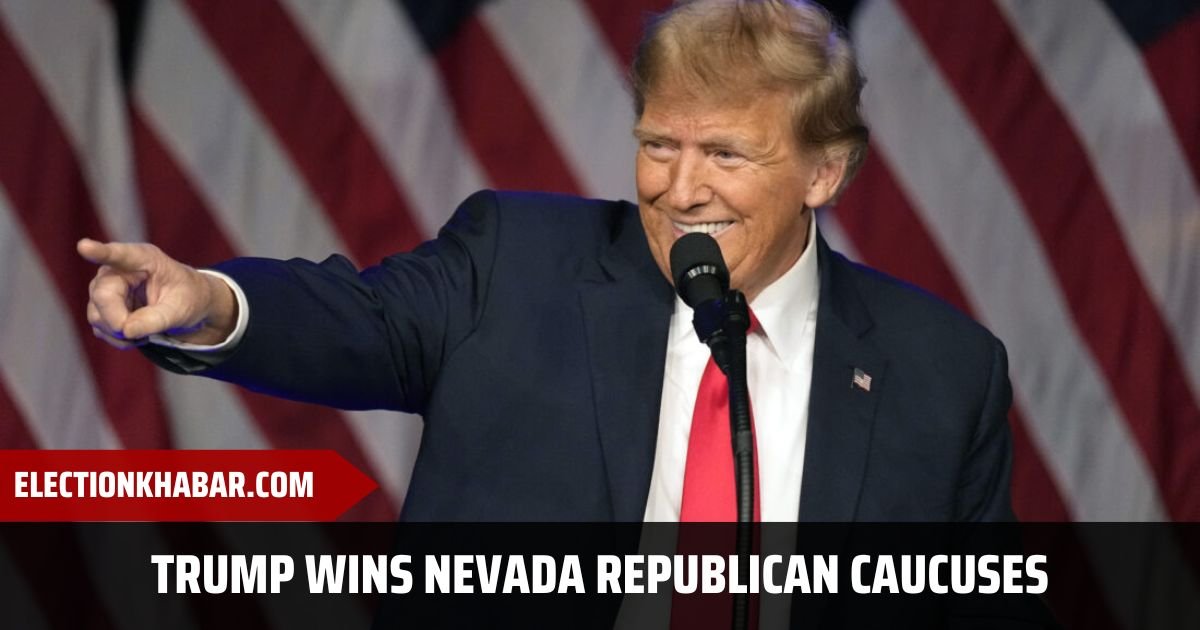Former President Donald Trump has won the Nevada Republican presidential caucuses, taking a commanding victory and securing delegates as he seeks to lock down the party’s 2024 nomination.
What are caucuses and how do they work?
Caucuses are local party meetings where voters gather to show support for presidential candidates. During a caucus, voters divide into groups based on who they’re backing. Candidates need to meet a certain threshold of support to win delegates who will represent them at the party’s national convention.
Caucuses tend to require more voter commitment than regular elections. Voters must show up at a set time and location and remain present throughout the process. This contrasts with regular elections where people can vote quickly by mail or drop in at polling stations throughout the day.
Why were two separate votes held in Nevada?
There were two Republican votes in Nevada – a caucus and a primary – due to a dispute between the state party and legislature.
Nevada lawmakers voted to switch from caucuses to state-run primary elections after issues emerged in 2020. However, the state Republican Party wanted to keep the caucus system and proceeded with their own caucus vote.
This meant there were two parallel Republican contests – the unofficial caucuses that still helped pick convention delegates, and the primary that acted more as a symbolic poll of voter preferences.
Why did Trump’s main rival skip the caucus?
Trump’s key challenger, former South Carolina Governor Nikki Haley, opted out of the Nevada caucus over claims it unfairly favored Trump.
Her team felt the caucus process gave Trump an edge due to his grassroots support and party allies involved in running the caucus.
Haley decided to focus efforts solely on the state-run primary vote where Trump wasn’t on the ballot. However, she lost badly to the “none of the above candidates” option in that primary.
What does Trump’s caucus victory mean?
By dominating the Nevada caucus, Trump has secured the state’s 26 delegates who will back him at the Republican national convention.
Candidates need 1,215 delegates to officially become the nominee. With three states under his belt, Trump is building a formidable lead that will be tough for challengers like Haley to overcome.
Nevada also shows Trump’s popularity persists among the Republican base. He won over 99% of the caucus vote against token opposition.
What happens next in the nomination race?
The Republican nomination battle now heads to South Carolina’s primary on February 24. This vote will be crucial for Haley as it’s her home state where she served as governor.
Trump is hoping his early momentum carries through South Carolina and the many states voting on March 5’s “Super Tuesday” primaries. If he sweeps these contests, he could effectively clinch the nomination by early March.
Haley has vowed to stay in the race and offer voters a choice beyond Trump. But she faces pressure to drop out if she loses badly in South Carolina.
Why does Nevada matter for the general election?
While Trump easily won the Republican contest, Nevada will be a fiercely contested battleground in November’s general election between Trump and President Joe Biden.
The state has voted for the eventual presidential winner in every election since 1912, except 1976. Winning Nevada is seen as crucial in piecing together the 270 electoral college votes needed to capture the White House.
Given Nevada’s tight 2020 results where Biden won by just over 2%, both parties know victory here could decide who triumphs nationwide in 2024.
